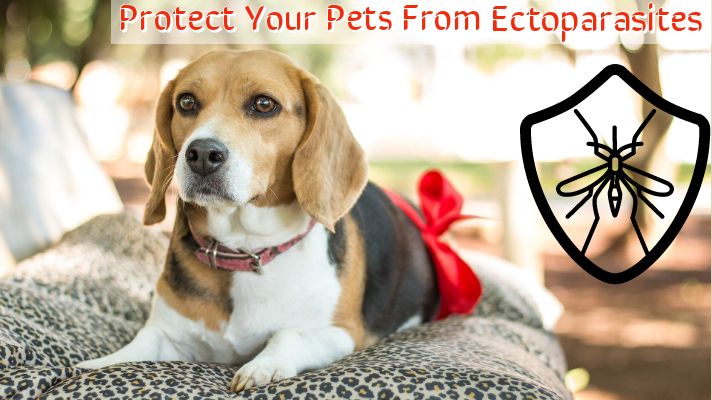Ectoparasites are the organisms staying on the outside (skin and hairs) of the animals. These ectoparasites include fleas, lice, mosquitoes, flies, ticks, and mites. Ectoparasites are responsible for producing harmful effects to pet animals in the form of biting, blood-sucking, the transmission of various parasitic, bacterial, viral, and haemoprotozoan diseases. Apart from that ectoparasites are responsible for causing various types of dermatological disorders in pet animals leading to alopecia, chronic localized or generalized dermatitis marring the external presentation or look of pets. Among various harms caused by these ectoparasites, the transmission of deadly Haemoprotozoan infections is an important one. Various haemoprotozoa like Babesia, Hepatozoan, and other blood pathogens like Ehrlichia, Anaplasma, Mycoplasma, etc. are mainly transmitted by ticks. All these blood pathogens are responsible for causing diseases characterized by fever and anemia due to blood loss which may if ignored becomes deadly to the pet animal. Strike of flies on even small wound/ scratch during the humid season may produce maggot wounds on the skin and even transmit some bacterial infections. Mosquitoes are biting insects that feed on blood and may cause discomfort to animals, dermatitis, and secondary bacterial infections of the skin. Moreover, they are vectors for transmission of dog heartworm Dirofilaria immitis.
Guidelines
- Observe your pet for any ectoparasite
- Do regular bathing, combing/ brushing to hairs of your pet
- Use soaps, shampoos exclusively formulated for pets
- Never use human skincare products for your pets
- Keep proper hygiene in pet homes to avoid breeding of some ectoparasites

